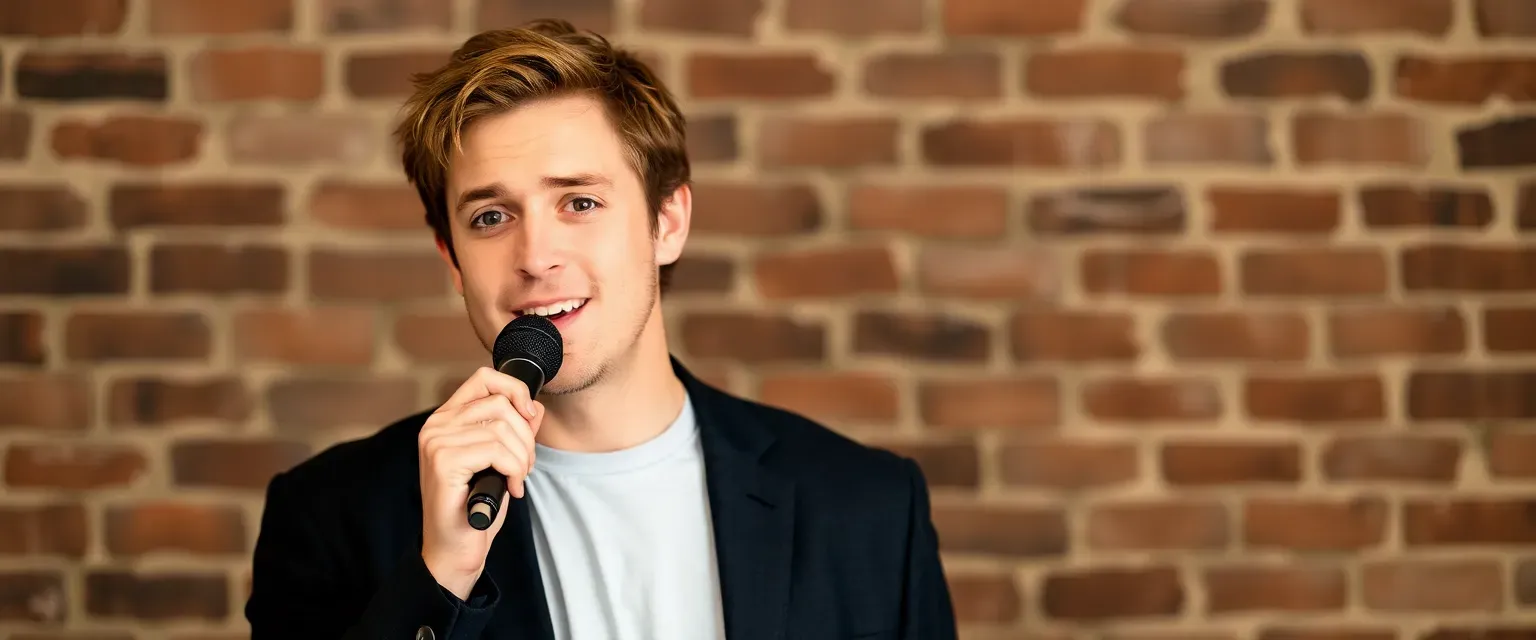Leo Branson is a man in his mid-thirties, standing at an average height with a slightly lanky build that suggests he was once a gangly teenager. His hair is a sandy brown, perpetually tousled as if he just rolled out of bed, which adds to his laid-back demeanor. Leo's eyes are a warm hazel, often twinkling with mischief or amusement as he recounts one of his many tales. His face is marked by laugh lines, evidence of years spent in the pursuit of humor and joy. He dresses casually, favoring comfortable jeans and graphic tees that often feature obscure references to classic sitcoms or cult movies.
Born and raised in a small suburban town, Leo grew up surrounded by the quintessential American experience: white picket fences, neighborhood barbecues, and the inevitable awkwardness of adolescence. It was here that he honed his storytelling skills, initially as a defense mechanism against the bullies who mocked his awkward gait and oversized glasses. Over time, what began as self-preservation evolved into a genuine love for making people laugh.
Leo's humor is characterized by dry wit and nostalgic storytelling. He has an uncanny ability to find hilarity in the mundane, transforming everyday experiences into comedic gold. His most popular routine, "Classroom Chaos," is a testament to this talent. In it, Leo humorously recounts his childhood experiences in school, particularly how every classroom had the same characters: the kid who asked too many questions, the teacher with questionable classroom management, and the awkwardness of group projects. His delivery is calm and almost deadpan, which contrasts sharply with the absurdity of the situations he describes.
Despite his success on stage, Leo harbors deeper aspirations that remain unfulfilled. He dreams of writing a memoir that captures not only his comedic journey but also delves into the more poignant moments of his life—the struggles with identity during adolescence, the bittersweet nostalgia for simpler times, and the complex dynamics within his family. However, Leo finds himself trapped in a cycle of self-doubt and procrastination. The fear of vulnerability holds him back from putting pen to paper.
To combat this creative block, Leo immerses himself in performing stand-up comedy across various venues—small clubs where patrons sip craft beers while chuckling at his anecdotes about teenage angst and parental quirks. These performances serve as both catharsis and distraction; they allow him to connect with audiences who resonate with his stories while temporarily silencing inner doubts about pursuing literary endeavors.
The conflict between Leo's desire for authenticity through writing versus maintaining comfort through comedy forms an ongoing struggle within him—a battle between artistic ambition versus familiar success on stage.
Yet amidst these internal conflicts lies hope—a glimmer ignited by encounters with fellow artists who encourage him to embrace vulnerability without fear or hesitation; friends whose unwavering support reminds him that true creativity thrives when one dares to be seen fully.
As time passes—and after countless nights spent scribbling ideas onto napkins backstage—Leo begins taking tentative steps towards realizing his dream project: drafting chapters filled not only with humorous anecdotes but also heartfelt reflections on personal growth over decades past.
Ultimately though still navigating uncertainties along this new path forward—Leo discovers solace knowing each story shared brings him closer not just toward completing memoirs long imagined—but embracing authentic self-expression beyond laughter alone.
